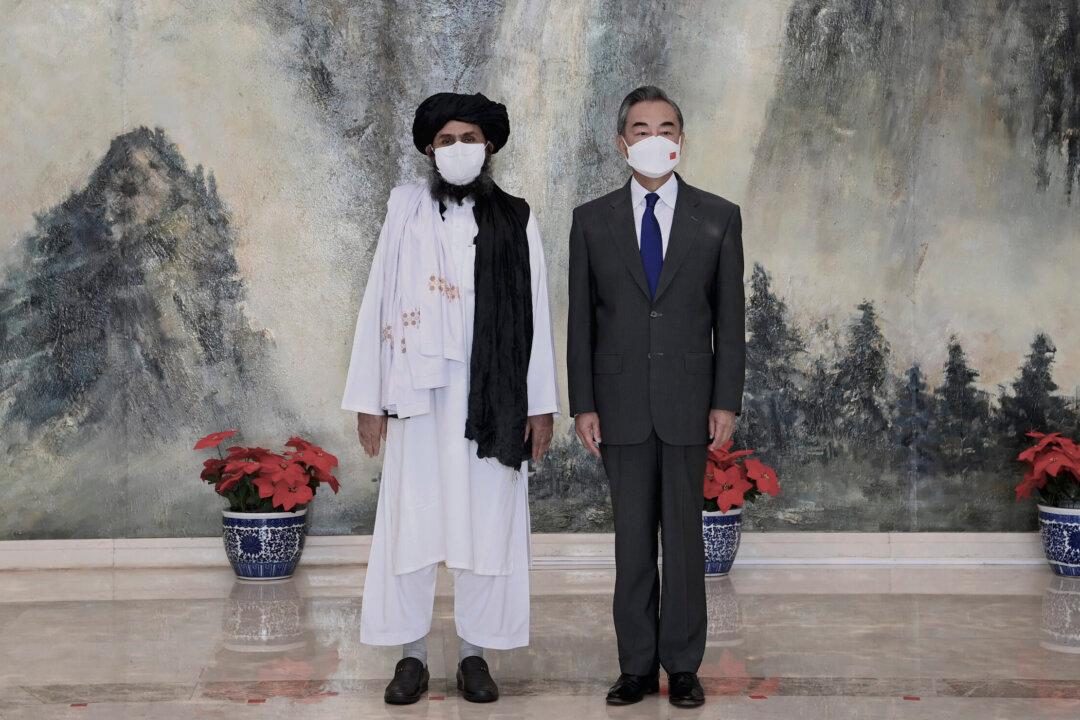Commentary
China on Dec. 5 raised the idea of official recognition of the Taliban, which should be considered a terrorist group. Four days earlier, Beijing accepted the diplomatic credentials of the Afghan Taliban’s new “ambassador” to Beijing. That the Chinese Communist Party (CCP) is the first to afford such recognition—despite two decades of purposeful Taliban slaughter of Afghan civilians—is par for the Party’s avaricious course.





